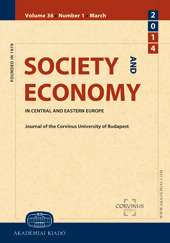Illegal State Aid and Harmful Tax Competition: The Case of Hungary
Illegal State Aid and Harmful Tax Competition: The Case of Hungary
Author(s): Dániel DeákSubject(s): Public Finances, Fiscal Politics / Budgeting
Published by: Akadémiai Kiadó
Keywords: harmonisation and tax competition; fiscal incentives; lack of transparency in fiscal legislation; low-tax regimes; ring-fencing; anti-avoidance tax rules; beneficial owners legislation;
Summary/Abstract: It is of particular importance to be competitive for a country like Hungary, going to join the European Union. It has been important for the country to modernise its tax system, in line with completing the transition into a modern market economy. It is usually less interest in the examination of the tax system as to whether it is competitive, and if so, whether it is streamlined enough to comply with the international comity that dictates us that a country - while attractive for investors - must not avail itself of tax practices that can be seen harmful. Hungary, associated with the EC, is also bound to rules equivalent to the EC rules on state aid and, as a WTO member, to WTO rules on subsidies. This paper takes a hard look at the Hungarian fiscal system from the perspective of illegal state aid and harmful tax competition.
Journal: Society and Economy. In Central and Eastern Europe ǀ Journal of the Corvinus University of Budapest
- Issue Year: 24/2002
- Issue No: 1
- Page Range: 23-54
- Page Count: 31
- Language: English

